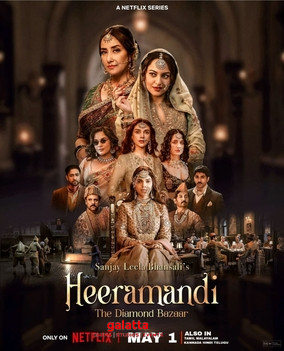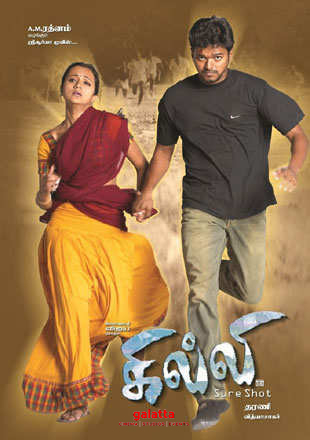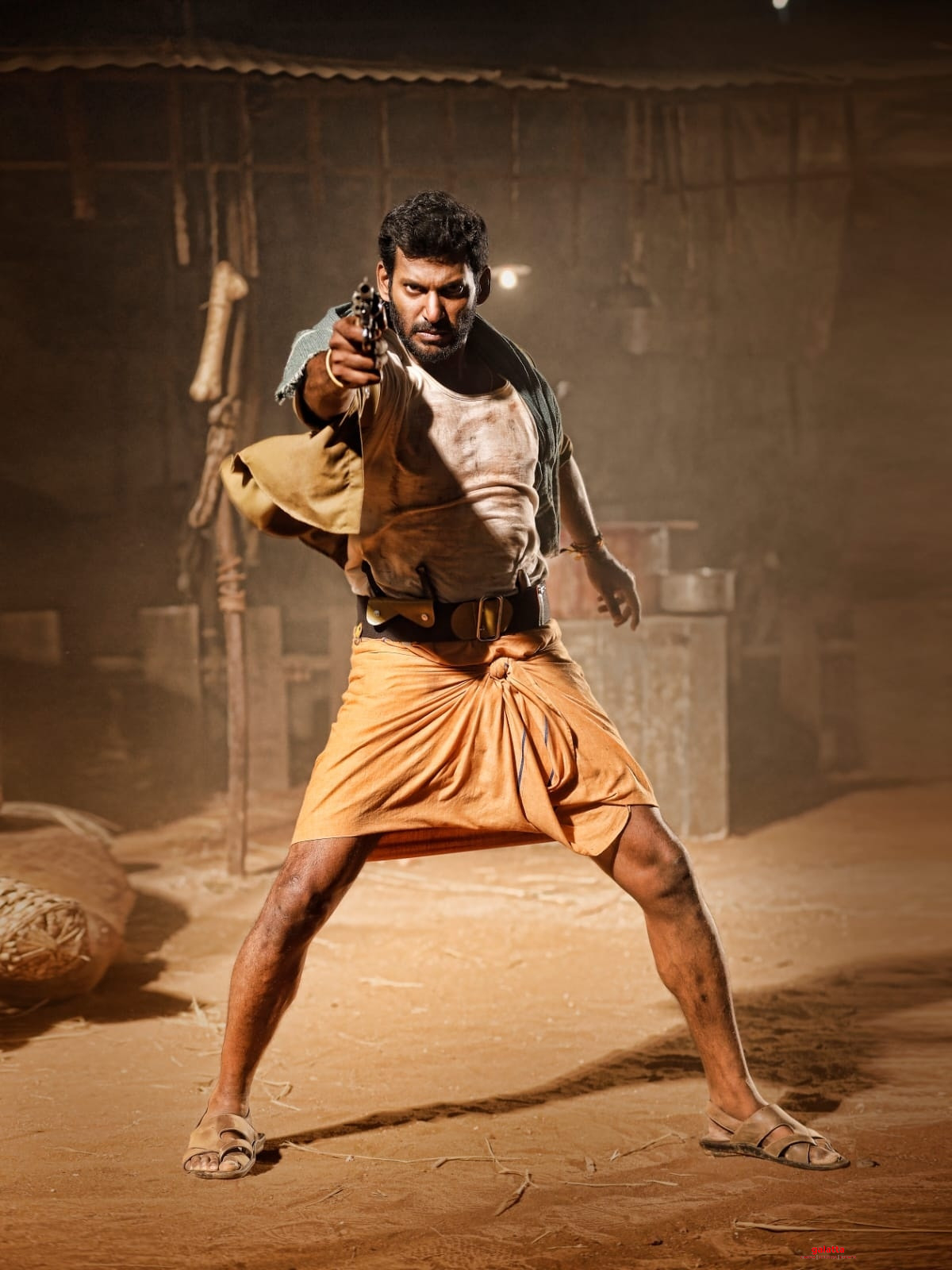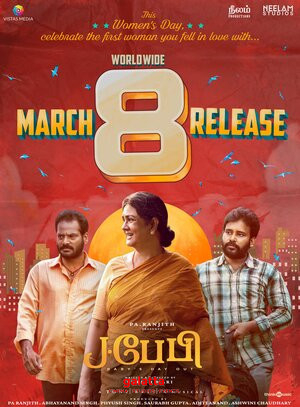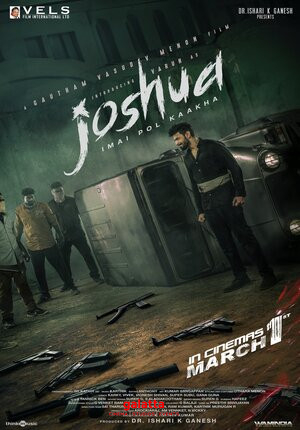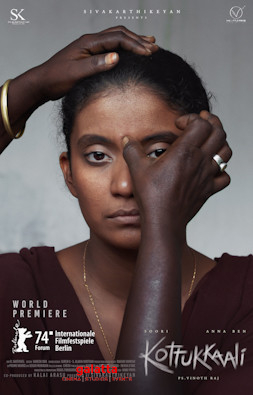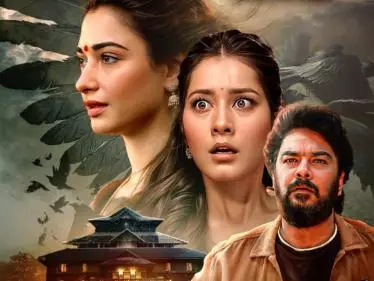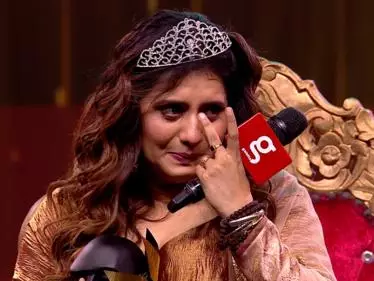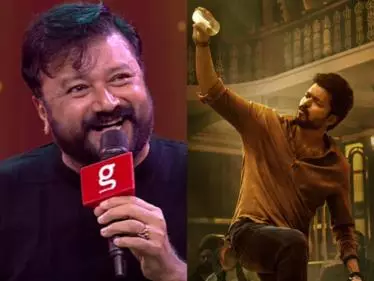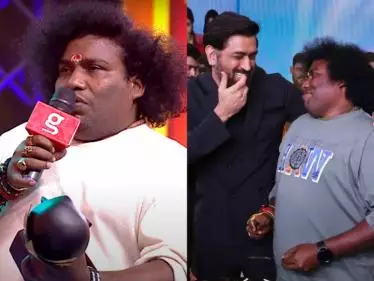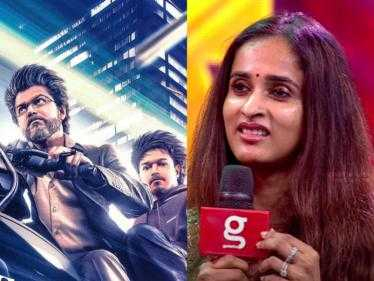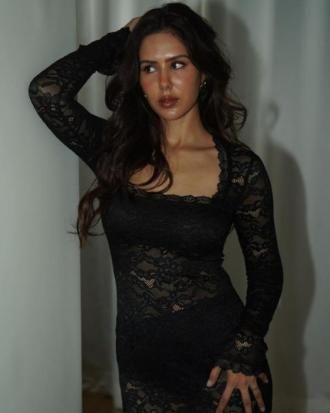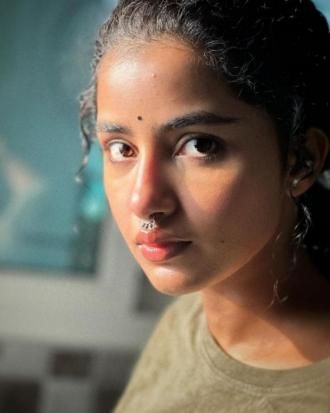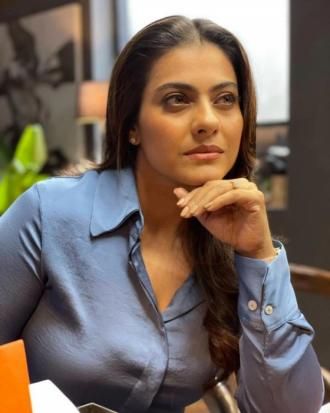Star Movie Cast & Crew
There is a stunning moment in Star that involves someone travelling. An overhead shot captures them on the road, and then something dramatic happens – and you think the director, Elan, is going to cut from the overhead view to a POV that gives us visual detail of what exactly happened. For instance, if the hero is slapped (as he is, many times, in this film), you want a shot of Kavin’s face, to see how the slap has affected him. You have seen the “action”, and you want the “reaction”. That is how drama works – mostly. But in that stunning shot, Elan doesn’t immediately tell us what happened. He continues his overhead observation, and shows us the empty road ahead. The point isn’t about the destination (i.e., the immediate reaction shot), but the journey. The point is what lies ahead on that empty road, that… “road of life”, so to speak. That is where the “reaction” lies for the “action” we just saw.
Here’s another stunning moment, and it involves an insanely complicated single shot in the premises of a hospital. It’s dark, and this adds to the visual texture of the drama. (Ezhil Arasu K is the cinematographer.) But again, this is not an empty, show-offy, “look what we can do” thing. The long single take reflects the culmination of the long journey the hero has had to take to reach that point. In this story about a man who wants to become an actor, a star, this shot is a kind of compression of real life and reel life. This shot has emotional resonance. It exists for a reason. It is executed for a reason. It contains all the big points of this story. How important is ambition? Is it more important to be a success or a good human being? How self-centred can you be while following your dream? There’s even a statue of Mother Mary that goes back to an earlier moment, and it makes you think that some things in life are perhaps controlled by external forces, call it God or chance or destiny.
This whole sequence is overwhelming, like the film – in a good way – and after I watched Star at a press screening, I literally ran away from the theatre. Sometimes a movie fills you with so many thoughts that you just want to hang on to those thoughts and live with the movie for a while. You just want to keep replaying things in your head without instantly having to say “I liked it” or “I didn’t like it” when someone asks you what you felt. But now, I think Star is a good, solid film. It is the first true piece of ambitious cinema we’ve had this year. Full credit to Elan, who – once again after Pyaar Prema Kaadhal – proves that he can take template material and make it his own. If Pyaar Prema Kaadhal was about a middle-class boy who deals with an out-of-his-league girl, Star is about a middle-class boy who deals with an out-of-his-league dream.
Right from the very first scene, Elan proves that he is an original. The scene gives us everything we are going to see in the film ahead. We see the Kavin-character, named Kalai. Like his name suggests, he is inclined towards the arts, particularly cinema. We see his loving, silent, supporting father, beautifully played by Lal. We see his loving, screechy, hysterical mother, played by a very funny, very moving Geetha Kailasam. We hear the bedridden grandmother, who keeps throwing taunts from another room. We see Kalai’s older sister, who gets the lovely punchline to the scene. In short, it is the perfect set-up, and we think back about this scene when we see the film come full-circle in the climax. The psychology that is planted in this first scene, through an item of facial makeup, is the same psychology that drives the hero at the end.
Elan’s second feature is filled with the offbeat rhythms of his first feature (we never really know where a scene will get cut), but this is a more ambitious venture – and his two big enablers are Kavin and Yuvan Shankar Raja. Yuvan goes all out and delivers a score that is astoundingly in sync with the movie’s mood, from the clarinet in the early funny scenes to the full-on rage-guitars in the dramatic stretches. As for Kavin, Star is a sign that he cares about being a star but he also cares about the kind of films that could make him a star. After the success of Dada, Kavin could have easily chosen one of those star vehicles where the screenplay is basically a giant tongue, licking the hero’s arse. But instead, he aligns himself with Elan’s prickly vision and delivers a performance that is both muted and tremendously alive.
Kalai is, at heart, a good guy, but he is also human – and his obsession, his dream, his stubbornness to become a star often makes him less than likeable. If his father gives him money, he complains that he needs more. Kavin sells this complaint without a whiny face. He says it all very matter-of-factly, and you are torn between feeling sorry for him and calling him a self-centred prick. And why does he want to become an actor? He doesn’t say he wants to change cinema or any such thing. He simply says, “Pudikkum pa”. And that is reason enough, right? That casual line contains a universe of insight: that it’s okay to go after something because we like it. At the other end of this spectrum, we get the big drama, and here, too, Kavin scores big. It is a range that covers self-pity, narcissism, rage, the feeling of being fucked by fate – and he covers this range beautifully.
The surprising thing about Elan is that he filters Tamil-cinema melodrama through a young sensibility. He knows the power of the “thaali sentiment”. He knows to set up a gut-punch moment at a meeting between two women who love the same man. But he also knows how to subvert our expectations of this moment. There is the easy comfort between two relay-race runners. One of these women has carried the baton so far. Her job is done. She passes the baton to the next runner, hoping that this woman will take the baton to the finish line. The phrase “thank you” in this scene: it killed me. Elsewhere, consider what could be seen as the mandatory fight scene for the hero. It involves bashing up a few people, but it also involves a helmet. That is an incredible detail, because it ties into something regarding Kalai’s ambition.
The film doesn’t work as well when it moves away from Kalai and tries to make a larger point – for instance, in the scene with a man with an ice-cream van. It is too melodramatic a touch for this movie, and it feels “poetic” in a forced way. Another bit that feels forced is during a shoot in Kalai’s office. The use of a mic, here, is a contrived touch. Also, here and there, we get little “nuggets of wisdom” that feel like motivational posters. With a less talented filmmaker, you wouldn’t mind and pass it off as Tamil cinema’s love for preaching and message-delivery, but here, something like this line – “Even when I gave up on you, you did not give up on yourself” – made me wince. It’s not the sentiment itself. It’s the way it is put across so bluntly, in words.
Also, the women in Kalai’s life (played by Preity Mukhundhan and Aaditi Pohankar) do not make much of an impression. They certainly prove that Elan is a very good director of actors — some of their expressions are superb. But they are not as interestingly written as Kalai. One of these women is a generic girlfriend-type, and the other one is too good to be true – practically a saint. She is a type of Imtiaz Ali trope who exists mainly to help the hero. A breakup scene is fantastic, and we needed more such thorny moments with these women. But most other times, Star is quite a ride – especially for those of us who have faced some part of Kalai’s journey. Everything clicks – the portions of struggle in Mumbai (there’s some brilliant use of montage here), the delightful family celebration around a funeral, the use of Bharathi’s “naan veezhven endru ninaithaayo” as a symbol of perseverance, or the wonderful running joke about “overacting” between father and son. So many moments, so many scenes kept tumbling out of my head as I kept thinking about the movie.
The core reason for the success of Star is not just that it is directed well or that the actors are good – but also that it has been written well. In David Fincher’s Zodiac, the film slows down as the investigation slows down – and along with the protagonists, we get a feeling of being trapped in the tedium of an endless loop. This is a big risk to take in a cinema culture where the audience screams “lag” the second a shot lasts longer than they feel necessary - but something like that is what Elan achieves here. The second half, especially, goes all out to show how, for some people with a dream, that dream is all that matters. We can pretend to be happy for the sake of others around us, but that dream corrodes our soul like rust. A moment involving an Employee of the Year trophy in an empty bus (and the words uttered just before) is another cut that just killed me. Some films are just out to make money. Star wants to achieve success by also being good cinema, and it isn’t afraid to antagonise the audience a little to get to that goal. As much as Kalai wants to become a star, directors like Elan are trying to make the mainstream a better place, a director’s medium once again. That thought is the high I ended up with.


